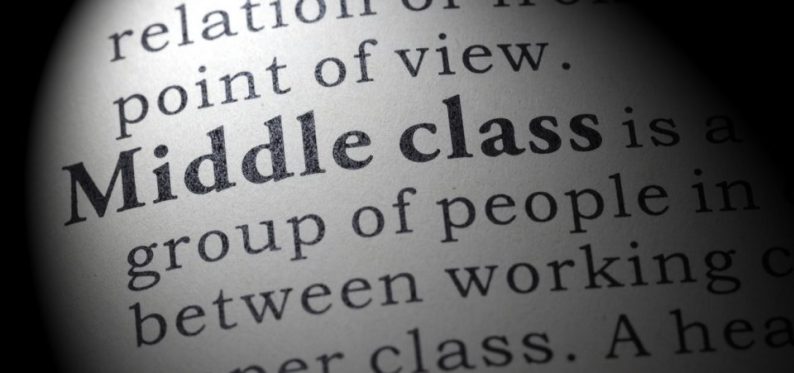
iStock.com/Devonyu
Does the Middle Class Still Exist?
Many Americans, who describe themselves as Democrats or the Left, continue to chase Russian ghosts. It must hurt less to project the cause of trouble on an external enemy than it does to look for the real cause of the problem at home. They are especially pleased about the opportunity to continue delaying coming face to face with the real issue that few would dare explore: the demise of the middle class.
Hillary Clinton can rejoice in the fact that Vladimir Putin won a fourth presidential term in the Russian election—it was a triumph. She and her supporters can continue to direct the blame for her loss eastward. It means she and the Democrats can avoid self-examination.
Indeed, few are shocked. Prestigious scholars discussed the socio-economic shift in American society (and beyond) long before Trump decided to run. But perhaps, unlike Clinton’s associates, Trump’s advisors possibly read a few articles and took notice.
If you woke up with an academic appetite, you could try reading “Testing Theories of American Politics: Elites, Interest Groups, and Average Citizens” by Martin Gilens of Princeton University and Benjamin Page from Northwestern University. Surely, some of Trump’s mentors—and those advising Bernie Sanders—read it. Yet, I wonder if Clinton and the gurus from the Democratic party did. The smart money is on “No.”
Aristotle’s Message for America
Even if the study has some academic flaws, as some have suggested, it reflects a concern that many Americans are increasingly sharing. Has the United States become an oligarchy? In simpler terms, does the middle class even matter in America any longer?
Are you part of the middle class? 10 years ago, this question was one of the major interests of sociologists—and snobbish people. Now, it is a very delicate political issue. To understand why the demise of the middle class matters as a threat to the economy and to democracy itself, the classical Greek understanding of “middle class” is useful.
Indeed, no less a figure than Aristotle discussed the concept of a “middle class,” even as it has changed over the past few centuries. The famous Greek philosopher and tutor to Alexander the Great—who would conquer much of the known world of his day—described the middle class as a “caste” or a group that lives and exists between those who own many “substances” and those who own very little or nothing: those who are “deprived.”
There are a few ways to consider this problem. One is pragmatic, even practical, if you will. In a democracy and a free economy, where the accumulation of personal wealth is tolerated and encouraged, the more balanced the wealth distribution, the better the chances that the “haves” can keep and even enjoy their material possessions.













Leave A Comment